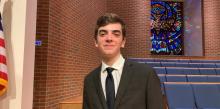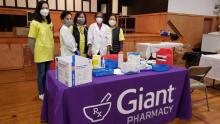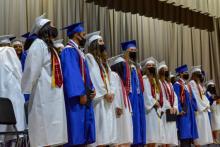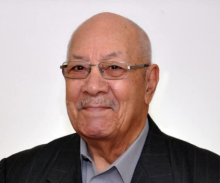News
Story by Matheus Gaulia
Junior Matheus Gaulia shares what God has been doing in his life on the campus of Blue Mountain Academy (BMA):
BMA has drastically changed my life. When I arrived on campus as a freshman, I had my future planned out with ambitious goals and dreams. Three years later, God is changing those plans and showing me what He wants for my life.
Story by Joshua Raymond
 LNAA is a relatively small school located in Piscataway. The sophomore class only has 15 students, including myself, but, as a result, we are a truly connected community. Many of us have known and grown up with each other through the years at LNAA. We have seen our friends’ struggles and triumphs and have loved, laughed, played, cried, hated, and felt the same pain with each other; we have always flourished and gotten through life together.
LNAA is a relatively small school located in Piscataway. The sophomore class only has 15 students, including myself, but, as a result, we are a truly connected community. Many of us have known and grown up with each other through the years at LNAA. We have seen our friends’ struggles and triumphs and have loved, laughed, played, cried, hated, and felt the same pain with each other; we have always flourished and gotten through life together.
“Yea, though I walk through the valley of the shadow of death, I will fear no evil; for You are with me; Your rod and Your staff, they comfort me” (Ps. 23:4, NKJV).
One fateful Friday in 2015, my wife, Hellen, and I were celebrating our fifth anniversary in Cancun, Mexico. We spent the morning on the beach. Shortly after lunch, my head started aching severely. Back at the hotel, I felt sick and began to vomit. I thought perhaps it was due to food poisoning.
When I woke up several hours later, I had no strength to move. My wife helped me to the bathroom, where I began to vomit again. Then I experienced something that changed my life forever: “Sweetheart, I am seeing double,” I told my wife.
Editorial by Todd Casey
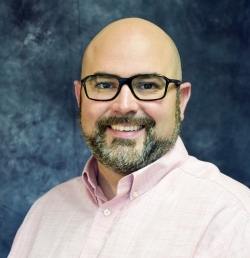 Alexander Bryant, president of the North American Division, recently challenged leaders to give young people opportunities within our churches to, referring to David, “slay lions and bears” to prepare them for the future—because their "Goliath" is coming. In other words, give them responsibilities to serve the church now to prepare them for leadership in the future.
Alexander Bryant, president of the North American Division, recently challenged leaders to give young people opportunities within our churches to, referring to David, “slay lions and bears” to prepare them for the future—because their "Goliath" is coming. In other words, give them responsibilities to serve the church now to prepare them for leadership in the future.
Story by V. Michelle Bernard / Feature photo by David Kim
Several churches in Baltimore/Washington, D.C., area have been part of the effort to distribute the COVID-19 vaccine.
Chesapeake Conference’s Washington-Spencerville Korean church in Silver Spring, Md., recently held two two-day clinics—helping 316 people receive the first dose of the Moderna vaccine and about 350 people the second dose.
Students, parents and educators are celebrating their recent and upcoming high school, grade school and kindergarten graduates. In May and June schools from the Columbia Union Conference are celebrating the accomplishments of their graduates.
Here is a list of academy graduation celebrations to view:
Story by LaTasha Hewitt
Bennie W. Mann, Sr., former Allegheny East Conference treasurer, recently passed away at his home in Pine Forge, Pa. In 1967, Mann began his career with the Allegheny East Conference (AEC) as the business manager of Pine Forge Academy (PFA). He was then invited to serve as the assistant treasurer of AEC in 1973 before being voted as treasurer in 1978. He served as treasurer until his retirement in 1996, having amassed more than 44 years of church employment.
Story by Esther Hernandez
Forty years ago this September, Jim Slater, then a freshman at Pennsylvania Conference’s Blue Mountain Academy (BMA) in Hamburg, broke his neck, became paralyzed, stopped breathing and almost died.
“It is an outright miracle from God that I am alive today,” Slater shares. “And because of my gratitude to God for what He did for me, I am dedicating my race this September as a way to raise funds to help other students attend BMA, to help them connect with God for all of eternity.”
Story by Tracey Jackson
This year, Allegheny East Conference's Pine Forge Academy (PFA) Honor Class of 1971 wanted to connect with the graduating Class of 2021 in a direct and specific way prior to graduation weekend.
Through the collaboration of PFA’s Career Readiness Program and the Alumni Association Student Enrichment Team, the two classes met via Zoom during a monthly Senior Night to spark new relationships, network and share ideas. The Class of 1971 members provided invaluable mentoring for the 2021 graduates, as several Senior Night meetings had Q&A sessions.


